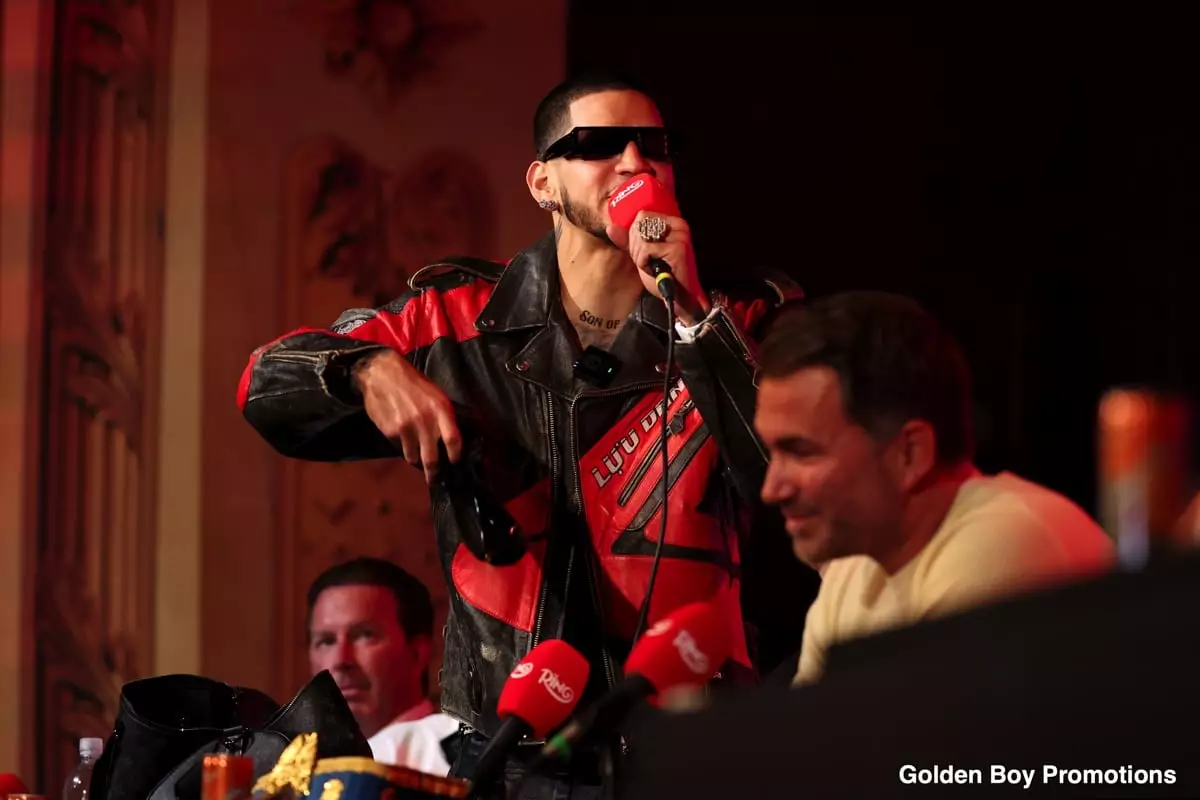In the ever-evolving landscape of professional boxing, fighters often face tough decisions that can define the trajectory of their careers. For Caleb Plant, a former IBF super middleweight champion, the next move isn’t just about adding another win to his record but about safeguarding his reputation and reigniting his market appeal. As industry experts analyze potential matchups, it becomes evident that Plant’s optimal choice lies not in rematching recent losses but in strategically aligning with opponents that will bolster his standing rather than diminish it.
The anticipated match against Edgar Berlanga signals a calculated move rooted in psychology and business. Berlanga, despite recent setbacks, remains a charismatic figure with a surge of youth and energy, qualities that translate to a compelling fight for fans. Engaging Berlanga could serve as a confidence booster for both fighters—Plant can demonstrate resilience post-defeat, and Berlanga can re-establish his presence after a devastating knockout loss. This matchup, projected for early 2026, is likely to be a masterstroke in preserving Plant’s relevance, especially if the bout is marketed effectively on platforms like Prime Video PPV.
Conversely, a fight against Jermall Charlo—who has been largely absent from the ring due to inactivity and outside issues—presents significant risks. The inexperience of Charlo after years of inactivity diminishes the allure of the fight for Plant, both in terms of fan interest and competitive challenge. Additionally, older fighters like Charlo, at 35, struggle to draw the younger crowd, and their waning motivation further complicates the matchup. For Plant, avoiding a mismatch with a disengaged opponent is not just smart—it’s necessary to safeguard his market value and avoid further damaging his reputation.
The Risks of Repeating Past Mistakes: Why Timing and Opponent Selection Matter
Choosing the wrong opponent can have long-term negative implications. For Plant, rushing into a rematch with Resendiz, his previous Van Gogh-style disappointment, is a gamble that could backfire if he suffers another loss. The momentum from his previous contests indicates a fighter still trying to rediscover his footing; selecting a secondary challenge over a high-profile fight risks further erosion of confidence and public perception.
On the other hand, engaging Berlanga appears to be a strategic move that aligns with Plant’s need for a comeback fight—one that can re-establish his narrative as a resilient and marketable fighter. Berlanga’s management is reportedly eager to line up a fight, possibly against inferior opposition, but the timing suits Plant’s career trajectory. This bout offers a chance for Plant to demonstrate growth and resilience, qualities that fans and promoters alike value highly.
Moreover, from a promotional standpoint, a Plant-Berlanga showdown boasts significant commercial potential. The price point for such PPV events, around $59.99, hinges heavily on star power and recent form. If Berlanga is beaten again before facing Plant, the fight’s salesability diminishes considerably, risking financial loss and dwindling interest. Conversely, if both fighters are at their peaks, the matchup could generate considerable excitement, loyalty among younger fans, and lucrative earnings.
The Importance of Timing and Strategic Opponent Selection
Timing is everything in boxing. Jumping into a high-stakes fight too early, especially after recent setbacks, can spell disaster. Conversely, waiting too long can lead to lost momentum and fading relevance. For Caleb Plant, the window for maximal impact is narrow but well-defined. His experienced lens indicates that a fight against Berlanga in early 2026 captures the moment when both fighters can benefit from mutual redemption stories.
The logic is clear: Berlanga, still young and hungry, needs a confidence booster to restore his standing after recent losses. For Plant, facing Berlanga offers an opportunity to showcase durability, technical prowess, and resilience—elements that can elevate him back into top-tier discussions.
In contrast, engaging Jermall Charlo, who has been inactive and embroiled in outside-the-ring issues, offers a less predictable and potentially less rewarding challenge. Timing-wise, the Challo fight makes less sense at this juncture unless he demonstrates a return to form and active competitiveness—neither of which is guaranteed.
Ultimately, for Caleb Plant, the strategic focus should be on rebuilding his confidence and fan appeal through carefully chosen opponents who can reflect a fighter in control of his narrative. Berlanga’s rising profile, youth, and recent setbacks make him an ideal candidate. This matchup represents more than a fight; it’s a chance for Plant to reassert himself, craft a compelling comeback story, and position himself optimally for future big-name battles.

